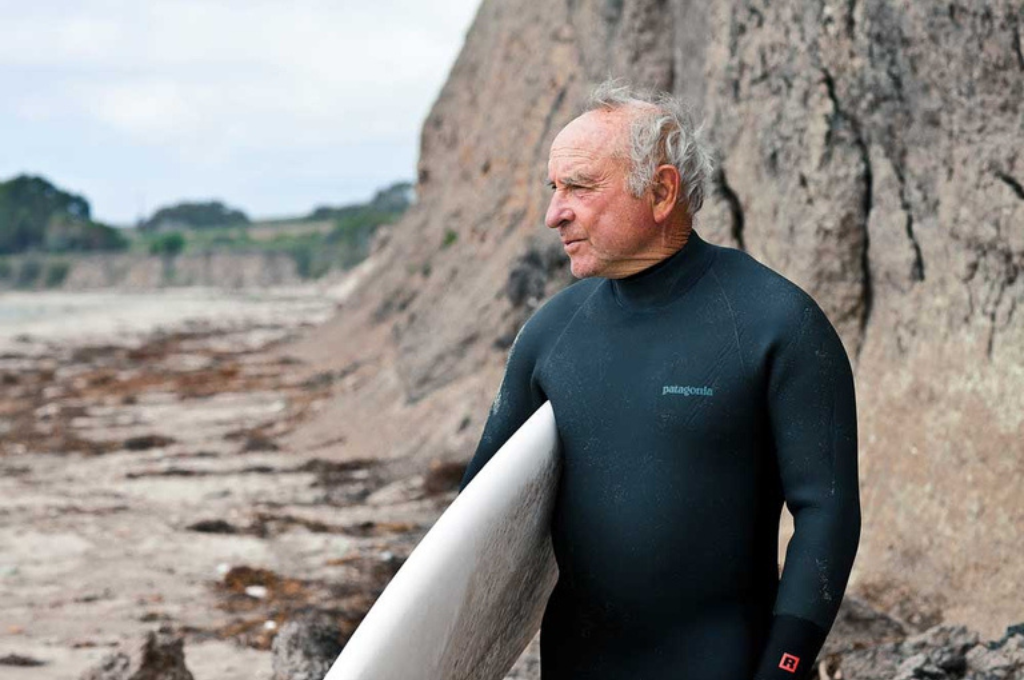As the world increasingly looks towards sustainable practices and responsible business models, Patagonia stands out as a beacon of hope. The company, led by CEO Yvon Chouinard, has built its brand around environmental activism and social responsibility, while also maintaining profitability. Chouinard’s journey and leadership have been instrumental in shaping Patagonia’s success.
Born in 1938 in Maine, Chouinard grew up in a blue-collar family and spent much of his childhood exploring the outdoors. He became an accomplished climber and, in 1957, he and a friend started making and selling climbing equipment out of the back of a car. That small business grew into what is now Patagonia, a global outdoor clothing and gear brand with a reputation for sustainability and ethical practices.
Chouinard’s leadership has been critical to Patagonia’s success. He has always prioritized the company’s mission of environmental responsibility over profit and has been vocal about the need for businesses to play a role in addressing climate change. In 1985, he famously decided to switch Patagonia’s entire product line to organic cotton, despite the higher cost and lower availability at the time. This decision not only helped to reduce the company’s environmental impact but also set an example for other businesses to follow.
Another key aspect of Chouinard’s leadership is his commitment to transparency. Patagonia has always been open about its supply chain and environmental impact, and Chouinard has been vocal about the need for businesses to take responsibility for their actions. In 2011, the company launched the Footprint Chronicles, an online platform that allows customers to trace the journey of Patagonia products from raw materials to finished products. This level of transparency has helped to build trust with customers and has set a new standard for corporate responsibility.
In addition to his commitment to sustainability, Chouinard has also been a champion of employee well-being. He has implemented policies such as flexible work hours and on-site childcare to support his employees’ work-life balance. He has also been a vocal advocate for fair labor practices, and Patagonia has been recognized for its ethical treatment of workers in its supply chain.
Chouinard’s leadership and vision have not only helped to build Patagonia’s brand but have also had a wider impact on the business world. He has shown that it is possible to build a successful business while prioritizing sustainability and social responsibility, and has set an example for other businesses to follow. His focus on purpose-driven leadership and commitment to transparency have helped to build a loyal customer base and a strong brand reputation.
Lessons from Yvon Chouinard’s Journey:
- Prioritize your mission: Chouinard’s commitment to environmental responsibility has been a key factor in Patagonia’s success. By putting the company’s mission first, he has been able to build a strong brand that resonates with customers.
- Be transparent: Chouinard’s commitment to transparency has helped to build trust with customers and set a new standard for corporate responsibility. By being open about your supply chain and environmental impact, you can build a strong brand reputation.
- Champion employee well-being: Chouinard has implemented policies to support his employees’ work-life balance and has been a vocal advocate for fair labor practices. By prioritizing employee well-being, you can build a strong and loyal team.
- Take risks: Chouinard’s decision to switch Patagonia’s entire product line to organic cotton was a risky move, but it helped to reduce the company’s environmental impact and set an example for other businesses to follow. Don’t be afraid to take risks in pursuit of your mission.
- Lead with purpose: Chouinard’s leadership is driven by his deep sense of purpose, which has enabled him to build a successful business that aligns with his values. By leading with purpose, you can inspire your team and customers to join you in pursuing a greater mission. Innovate for sustainability: Chouinard has consistently sought out new materials and technologies that reduce Patagonia’s environmental impact. By innovating for sustainability, you can not only reduce your own impact but also set an example for others in your industry.
- Collaborate for impact: Chouinard has worked with other businesses, NGOs, and government organizations to drive change on environmental issues. By collaborating with others, you can amplify your impact and create lasting change.
- Measure what matters: Chouinard has implemented a rigorous set of environmental and social impact metrics to ensure that Patagonia is making progress on its mission. By measuring what matters, you can ensure that your business is aligned with your values and making a positive impact.
- Stay true to your values: Chouinard has been unwavering in his commitment to environmental and social responsibility, even when it has meant making tough decisions that impact the bottom line. By staying true to your values, you can build a brand that stands the test of time and inspires others to join you in your mission.
Patagonia’s leadership philosophy of prioritizing sustainability and social responsibility has undoubtedly contributed to its success. Here are some of the key lessons that can be learned from Yvon Chouinard’s journey:
- Set a clear purpose: Patagonia has a clear mission of providing high-quality outdoor gear while minimizing its impact on the environment. This purpose is not only reflected in the company’s products but also in its operations and marketing efforts.
- Embrace sustainability: Chouinard was an early advocate for sustainable business practices and has continued to prioritize it throughout Patagonia’s growth. From using recycled materials to implementing environmentally-friendly production processes, the company has made significant efforts to reduce its impact on the planet.
- Invest in employees: Patagonia’s success can be attributed to its dedicated employees, who are encouraged to take time off for outdoor activities and are provided with numerous benefits, such as child care and flexible schedules. This investment in employees has created a strong sense of loyalty and dedication, leading to higher productivity and job satisfaction.
- Take a stand: Patagonia has been vocal about its political and social beliefs, using its platform to advocate for issues such as climate change and public lands conservation. This has helped the company to build a strong brand identity and connect with customers who share similar values.
- Innovate with purpose: Patagonia has consistently pushed the boundaries of sustainable and ethical business practices. From developing new materials to creating supply chains that prioritize fair labor practices, the company has shown that innovation can be a force for positive change.
- Prioritize transparency: Patagonia has been transparent about its business practices and the impact of its operations on the environment. This has helped to build trust with customers and stakeholders, and has encouraged other companies to follow suit.
- Give back: Patagonia has a long-standing commitment to philanthropy, donating 1% of its sales to environmental causes. This has not only helped to support important initiatives but has also helped to build a strong sense of purpose and community within the company.
Through its leadership philosophy, Patagonia has shown that it is possible to build a successful business while prioritizing sustainability, social responsibility, and purpose. This approach has not only helped to create a loyal customer base but has also contributed to a better world for all.
Yvon Chouinard’s journey and leadership at Patagonia serve as an inspiration to businesses everywhere to prioritize sustainability, social responsibility, and purpose. By following these key lessons from his journey, businesses can not only create positive impact but also build a strong and loyal customer base that shares their values.

















